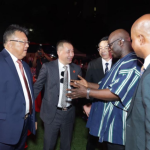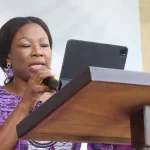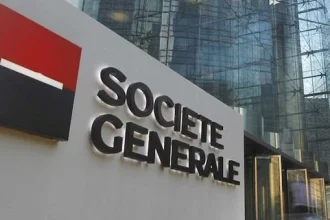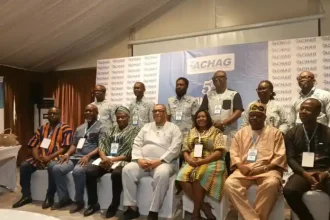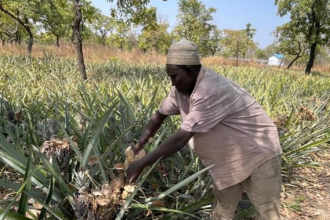President Nana Addo Dankwa Akufo-Addo says it is in the public interest that the proposed Electronic Transaction Levy (E-Levy) be enacted into law to improve the country’s tax-to-GDP ratio on an equitable basis.
He said the E-Levy was an innovative fiscal measure that would shore up Ghana’s fiscal profile, and raise the funds needed for the speedy transformation of the economy.
Speaking at the opening of the maiden National Labour Conference at Kwahu-Nkwatia in the Eastern Region on Monday, President Akufo-Addo emphasised that it was time the country raised money domestically to fund its development imperatives and ended its dependence on foreign savings.
“It is time we accepted the full implications of our goal of Ghana Beyond Aid, and designed our fiscal profile accordingly.
The Asian Tigers, whom we envy and want to emulate, financed their rapid development from their own savings. We need to do the same.”’
The meeting, organised by the Ministry of Employment and Labour Relations and its Tripartite Constituents, is on the theme, “Strengthening Tripartism for Peaceful Labour Relations and Resilient Economy.”
It will reinforce a tripartite conversation on the dynamics and happenings on the labour front, and engender discussions on the State of the Economy, Conditions of Service of Public Sector Workers, Public Sector Salaries, Labour Productivity, Labour Dispute Prevention and Resolution, and Sustainable Pensions for all.
The Conference will inform and shape the government’s approach for the resolution of labour issues for national development.
It will provide a unique opportunity for the various actors to exchange views and ideas on the thematic areas and emerging issues in a changing world of work to promote a positive and proactive approach to resolving labour issues for national development.
The president said it was not acceptable that only a small proportion of Ghana’s population carried the tax burden, and that it was incumbent on the Government to find innovative ways of bringing everyone on board to contribute their quota for rapid national development.
He noted that with the COVID-19 pandemic ravaging the economies of the world, including that of Ghana, transforming the economy would require the active involvement and participation of all, including the large informal economy.
“We have to make concerted efforts as partners to hasten our recovery from COVID-19 by finding intelligent ways of bringing everyone on board to contribute their quota, no matter how small,” he said.
President Akufo-Addo told the gathering that Ghana’s tax to GDP ratio of 4.2 percent compared unfavourably with peers the world over, and stressed the need to urgently enhance significantly domestic revenue mobilisation “to realise our development potential and create opportunities for our vibrant and dynamic youth and deliver improved livelihoods for our people.”
Ghana’s tax-to-GDP ratio of 12.2 per cent pales in comparison to the rest of the world. The average tax-to-GDP ratio in West Africa stands at 18 per cent, and the average for OECD countries stands at 34 per cent.
“It is, thus, no wonder that American, German, French, Japanese and British peoples, amongst others, can readily find the means to fund their own development, particularly their infrastructural development, whereas we are constantly struggling to do the same.
“We cannot continue to allow less than ten percent of the population, about 2.4 million people, carry the direct tax burden of 30.8 million people… we must provide an opportunity for every Ghanaian to contribute towards nation-building,” he stressed.
The president appealed to all Ghanaians, including those participating at the National Labour Conference “to ensure that the hidden, submerged or informal economy is brought within the remit of the formal economy.”
“This would be one of the surest ways of expanding the tax base for mobilising adequate resources to sustain development,” he underscored.



